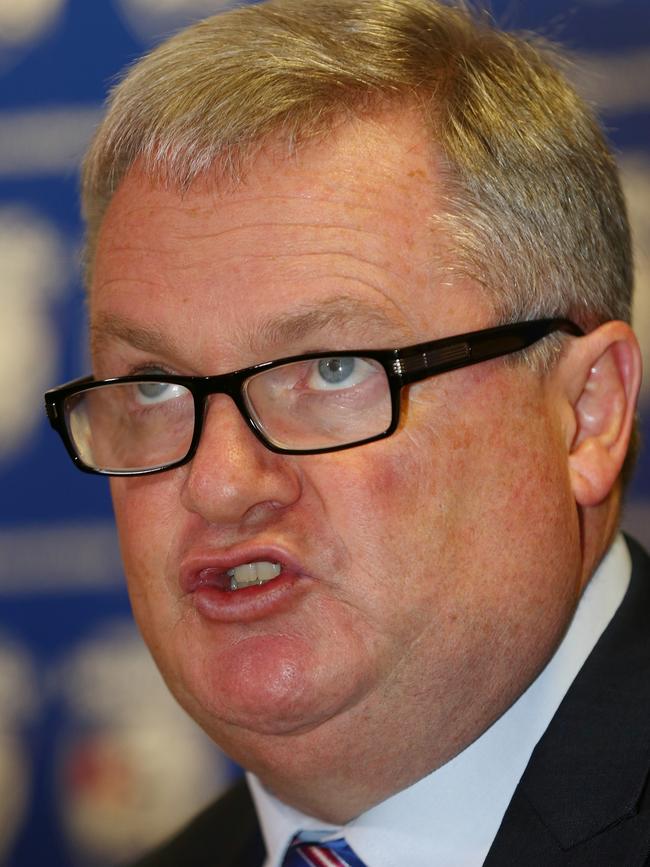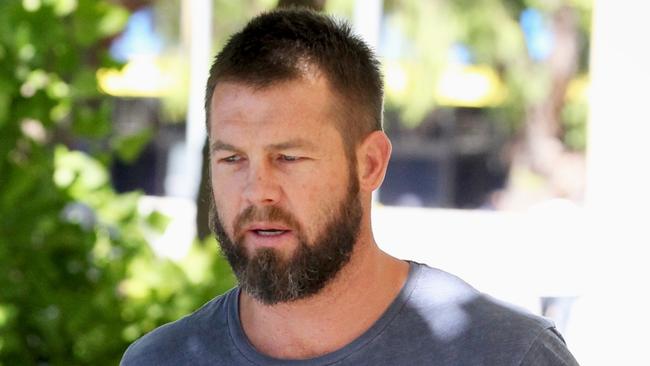Rita Panahi: Will a player have to die for the AFL to act on drugs?
The continuing controversy over the AFL’s illicit drug code is proof enough that it’s seen as fundamentally flawed but the big fear is that it won’t change until a player dies from an overdose, writes Rita Panahi.
Rita Panahi
Don't miss out on the headlines from Rita Panahi. Followed categories will be added to My News.
One fears that the AFL won’t change its flawed illicit drug code until a current player dies from an overdose. If the league really prioritised player welfare above corporate image, it would not have formulated a policy designed to conceal the illicit drug use of players, not only from the public and sponsors, but also from their individual clubs.
Those clubs have a duty of care to all employees, including impressionable young men entrusted to them when drafted as teenagers. How can they protect these players from the considerable harm of illicit drug use if they are in the dark about what’s happening at their own club? How many more drug problems or serious mental health issues need to emerge before the AFL heeds calls to overhaul its policy?
RIEWOLDT HAS PUT PRESSURE ON AFL OVER DRUGS
PARTY BOYS DON’T FEAR ILLICIT DRUG POLICY
DANE SWAN’S RADICAL ILLICIT DRUG SUGGESTION
Western Bulldogs president Peter Gordon believes clubs should know if their players are “repetitively breaking the law by using illicit substances” or “grooming” others. “If there was a player on any club’s list that was doing that, then I would want the right to sack them,” he said.

The link between illicit drug use and mental health conditions is well documented but the AFL has designed a system under which claiming a mental health problem, whether genuine or not, will give players a licence to continue taking dangerous drugs including ice, GHB and cocaine.
Under the current testing regimen, a player is all but guaranteed to escape public exposure and sanctions even if they’re a habitual drug user. It appears the AFL has learnt nothing from the Ben Cousins experience in which a confirmed drug addict managed to dodge registering a single positive test. If anything the drug testing regimen today is weaker than it was when the Eagles were flying high, in more ways than one.
In 2016 the AFL made what looked like a subtle change to the drug code but in reality rendered the entire policy pointless by legitimising the most glaring loophole, under which players self-report to avoid strikes.

Now, the chickens are coming home to roost with reports of mass drug use among current players. I don’t want to say “I told you so” but I told you so. When the policy was first modified I predicted the loophole would be used and abused with players facing nothing harsher than counselling rather than sanctions. Whether you’re a recreational drug user or an addict, you’d be insane not to claim a mental health issue to protect yourself from public exposure, fines and suspensions.
St Kilda great Nick Riewoldt has confirmed the drug situation “is out of control” with players “taking the piss” by abusing the system.
“There’s no recourse, there’s no ramifications, so it’s a free-for-all in the off-season,” he said. “Blokes are doing it because the system allows them to get away with it.”
Riewoldt identified how to curb illicit drug use — sanctions. When it comes to drugs and sport, whether the drugs are performance enhancing or illicit, the stick is far more effective than the carrot in forcing behavioural change.
Frankly, it’s shameful mental health is being used as “get-out-of-jail-card” for players who don’t want to play by the rules. It is an insult to every genuine sufferer.
So how did the league manage to sell this mess to the public? In typical AFL style, the weakening of an inadequate drug code was sold as toughening it.
With the AFL, it’s always advisable to look at what it does and ignore what it claims. Only this week it was celebrating being honoured as the only national sporting body to be recognised as a Workplace Gender Equality Agency employer of choice.
The league was lauded for having women make up 40 per cent of its executive (they don’t) and its ongoing sexual harassment training (it needs it). It appears the masters of spin at the AFL indulged in some feats of creativity to produce the 40 per cent figure, including technically demoting general manager of strategy Walter Lee by saying he reports to fellow executive Ray Gunston.

That allowed the league to claim in its 180-page submission to the WGEA that 40 per cent of its executive were female in May, 2018.
Predictably, some media pundits with short memories showered the league with praise for its gender policies but a year earlier in July 2017, two AFL executives, Simon Lethlean and Richard Simkiss, were caught in a sex scandal with younger female employees.
When the media first asked the AFL about the story, it was denied and no action was taken. It was only when the Herald Sun produced evidence that they were forced to act. Any workplace that harbours a culture where executives feel entitled to plough through the junior ranks of the female staff, as well as circulate a top 10 most f---able list, is not one deserving of gender awards.
Increasingly fans are waking up to the AFL’s empty corporate virtue signalling. Former Sydney Swans player Dale Lewis was mocked for blowing the whistle on the AFL’s seedy drug culture in 2002. Since then we’ve seen ample evidence and accounts from players, coaches and club officials to know that the problem persists.
Whether we like it or not football stars are heroes to scores of Australian kids. For that reason alone it is important we do not have elite athletes repeatedly breaking the law via illicit drugs.
There’s another column to be written about the personal risk and threats to the integrity of the sport that comes from players associating with drug dealer, bikies and other criminal elements.
Rita Panahi is a Herald Sun columnist
